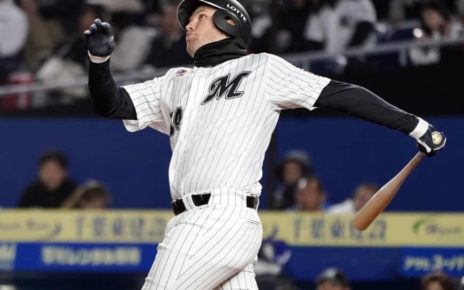During Game 1 of the 2019 World Series FiveThirtyEight writer Travis Sawhcik tweeted out this absolute gem,
Before we dig into the meat of that little nugget, I’ll be honest, I have lots of problems with Sawchik. I regularly go after his opinions on Twitter and in general find him to be a lousy representative of baseball journalism. That being said, all the bias and contempt for a person in the world doesn’t stop the above tweet from being abhorrent. In response to Sawchik’s word vomit, I later tweeted out a link to a FanGraphs article from Allison McCague. McCague’s article does a better job of refuting Sawchik’s main point than I ever could. However, I think it’s important to approach the issue of Sawchik’s comment from a different angle.
There’s no denying that referring to human beings as assets is a terrible way to approach life. Still, what then does that say about the baseball community’s constant discussions about WAR, DRC+, DRA, awards, and so on? Pretty much all of us are guilty of approaching baseball using those or similar terms. It’s become an inevitable part of baseball fandom and baseball research. The need to define a player’s value defines the discourse about baseball. Our need to define value has been coopted by baseball front offices across the globe. They too seek to define value and then to use the perceived value of a player to drive down contracts and win arbitration cases. Baseball is a game of value. If we’ve all accepted that doesn’t that mean we’ve accepted that players are assets just as Sawchik has put forth?
The answer to that is yes and no. It is true that those of us who watch, talk, and write about baseball are searching for the value in a player, coach, team, league, etc. It’s just as true that the value we are seeking isn’t always tied to stats. Those far smarter than I seek out the human side of a player when deciding their value. A player having a great WRC+ isn’t enough, it also matters what type of person they are off the field. The reason for this is simple, these aren’t just baseball players we are talking about, they are human beings.
If the baseline for our discussions and evaluations is that baseball players are human beings then that changes the meaning behind said evaluations. We’re placing players as not assets but part of the greater community that is being a human being. Writing about, and discussing, the statistics of a player and whether that means they are a good or bad baseball player is fine and dandy. I encourage that sort of discussion because player evaluation is fun. However, we need to include the human component and not stop the evaluation at the imaginary threshold of stats and stats alone. No doubt it is harder to talk about players as whole people than just a distillation of recorded numbers from a baseball field. No one said talking about baseball should be easy unless all we’re talking about is how much damn fun the game is and can be.
I’m currently reading through Bill James’ The New Bill James Historical Baseball Abstract and it is, for the most part, a fantastic read. There are however some troubling aspects. I won’t get too deep into those here, but I feel like the moments when James lets the veil drop about his true feelings about the value of labor are integral to the growth of the mindset of people like Sawchik. Throughout the book, James is particularly hard on former Philadelphia Phillie Dick Allen. He takes every chance he can to take a shot at Allen to the point where one would think that Allen had killed James’ dog. The truth is that James takes issue with Allen because he was a player who had the temerity to balk at ownerships and front offices treating him as less of a human being. He fought for his rights as a laborer and had no problem mucking up the works for whatever team he was on to make sure that he and his family were taken care of before some rich owner got theirs.
Think of it this way, we don’t care about the actions of a Paramedic who shows up to our door to save our lives beyond their skills in actually saving our life. She may be a Paramedic who does nothing but cause issues with her employer because she believes in unionization, advocating for patient care above the department bottom line, and looking out for her best interests above that of her employer. Those qualities make her human, and due to my own biases, they would make her a person I want to see succeed. Yet James would look at her as a malcontent and someone who has less value because of how easily they display their very humanity.
The James approach has bled into people like Sawchik taking the disdain for labor a step further. They focus solely on numbers and believe that anything else is faux window dressing. Players are nothing more than assets, or perhaps distressed assets. Players are pieces to be moved around on a board, not human beings with families, feelings, mental issues, strengths, weaknesses and much more. By reducing players to this level you can overlook both the thoughtful actions of Sean Doolittle and the troubling actions of Roberto Osuna. All that matters is how the player in question moves the needle of their stats, positively or negatively.
The Sawchik approach is most definitely an approach, that’s the most I’m willing to give his asset driven outlook. Such an approach isn’t healthy for the game, the players, or the fans. Sawchik and others want to strip players of their humanity because their humanity can’t be quantified in a number found in a spreadsheet. Thinking of players as assets and assets alone is a perversion of sabermetric research and distorts the true purpose of any statistically-based research undertaken. All of us are looking for the value in a player, that value just happens to be two-fold. If we look at players as human beings with weaknesses and strengths who also happen to produce positive or negative results on a field then we can engage in the sort of discourse that makes the game stronger. If all we’re doing is viewing players as assets then we are failing those players, anyone who reads/listens to what we have to say, and the future of the game. It’s up to you to decide if you want a healthy baseball community or the hellscape Travis Sawchik and his ilk want to bring to fruition.
Lead photo courtesy of Hunter Martin – Getty Images




